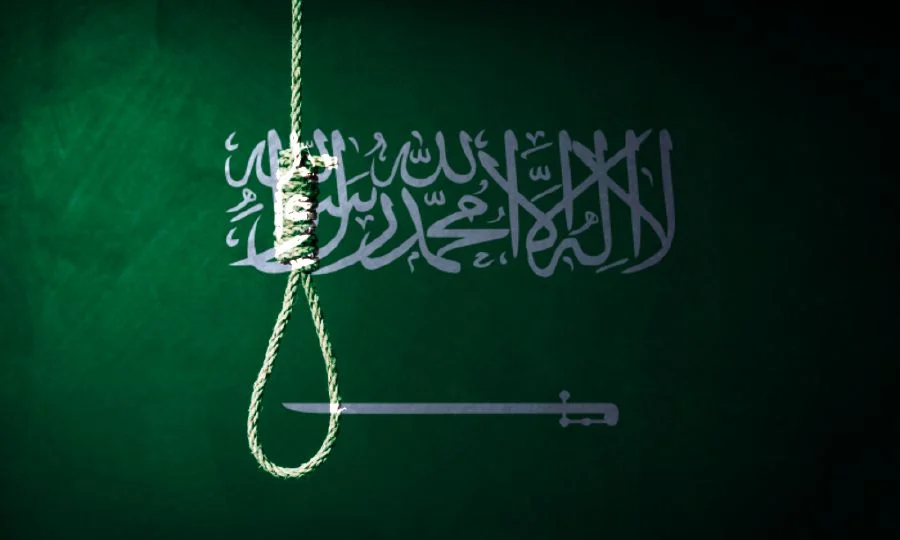In April 2024, the Court of Appeal in Saudi Arabia approved two death sentences for Yousif Al-Manasif and Ali Al-Mubaiouq, both Saudi nationals, who were accused of protest-related crimes allegedly committed as children. The two men were arrested between April 2017 and January 2018 for protesting against the government and ‘betraying the homeland’, a time in which they were between the ages of 14 and 16. Saudi Arabia has denied allegations of torture against the defendants and refuted claims that they were minors at the time of the charges, despite the Public Prosecutor’s examination confirming that they were.
The two death sentences are the consequence of a much bigger issue: Saudi Arabia’s continued neglect of the right to life, particularly concerning minors. Saudi Arabia has repeatedly claimed that it does not apply the death penalty to children or in respect of crimes allegedly committed by children. In 2016, a statement by the Saudi Arabian delegation to the UN Committee on the Rights of the Child reaffirmed this stance, stating that ‘there is no application of the death penalty on children’. Furthermore, in 2020, Saudi Arabia officially abolished the death penalty for child defendants through a Royal Decree, replacing it with a prison sentence of a maximum of 10 years in a juvenile detention facility. The decree was expected to spare the lives of at least six men who were on death row for participating in anti-government protests during the Arab Spring uprisings when they were under the age of 18. However, despite these official declarations, there remains a stark reality: children and individuals who have committed crimes as minors continue to face executions, with many currently at imminent risk.
According to ESOHR, Saudi Arabia has executed at least 1,562 executions since 2010, with 58 executions occurring in 2024 alone. Among these cases, 15 individuals have been executed for crimes committed when they were under 18. Notably, 11 of these executions took place after 2015, when King Salman assumed the throne, and 7 occurred after 2017, following the appointment of the Crown Prince. In 2019 alone, there were 6 executions of child defendants. The Crown Prince has blamed ‘bad laws’ and rogue judges for the continued executions. However, no execution can proceed without his approval. This raises significant questions: How do executions of minors persist despite the abolition of the death penalty for child defendants by royal decree? What are the mechanisms by which these executions are carried out, and what loopholes enable the continued application of the death penalty on minors?
The answer is two-fold. First, the distinction between Ta’zir, Qisas, and Hudud crimes has justified persisting with the death penalty on minors despite the Royal Decree. Islamic Sharia law classifies offenses and their respective punishments into three categories. Hudud crimes, such as defamation, adultery, robbery, and drinking alcohol, entail punishments fixed in the Quran, ranging from public lashing to public stoning to death. Qisas follows the Islamic principle of ‘an eye for an eye’ for crimes against an individual or family, with punishment being equal retaliation outlined in the Quran. Ta’zir crimes encompass crimes not falling under Hudud or Qisas, with punishments at the discretion of the state, a judge, or a ruler, for actions deemed sinful or disruptive to public order. Saudi authorities initially stated that the Royal Decree abolishing the death penalty for children would apply to all three crime categories. However, they later backtracked, asserting that the decree applies solely to Ta’zir crimes. Exploiting this, the government reclassified various offenses from Ta’zir to Hudud crimes, thereby justifying and maximizing the use of the death penalty for juvenile defendants. This legal loophole significantly contributes to the ongoing imposition of death sentences and executions despite the decree’s implementation.
Second, Saudi authorities have combined this legal loophole with the use of torture to coerce minors into confessing to crimes they did not commit. For instance, Abdullah al-Howaiti, apprehended at 14 years old, claimed his innocence for months until he was tortured into confessing to leading the robbery of a jewelry store and murdering a police officer. These offenses are classified as Hudud crimes and led to Abdullah’s death sentence, illustrating the authorities’ methods of coercing minors to admit to Hudud crimes so they can use the legal loophole to impose the death sentence.
The continued imposition of the death penalty on children by the Saudi authorities and how it is justified or made possible is a clear violation of the international legal prohibition on execution for childhood offenses under Art. 37(a) of the Convention on the Rights of the Child, to which Saudi Arabia has agreed to be bound. Saudi Arabia has also breached the prohibition against the use of torture under Article 2 of the Convention against Torture and the prohibition under Article 13A of the Arab Charter by torturing child defendants. Governments that have an influence on Saudi Arabia such as the US must use their leverage to pressure Saudi Arabia to comply with international law and abolish the death penalty for child defendants for all crimes. The Saudi authorities must review individuals on death row to identify all persons who may have been under 18 at the time of the alleged offense and release those individuals. Moreover, there must be investigations and prosecutions made on all allegations of torture and ill-treatment of child-defendants. The unlawful execution and torture of children cannot continue.





